The North Star State has more to offer than you’d ever get the chance to see, from rolling waterfalls to gorgeous lakes and rocky ridges to explore.
Minnesota is not lacking in the sightseeing department, and in fact has one of the most diverse landscapes in the United States.
You’ll find lush green forests for the nature lover, as well as thousands of tourists attractions like the Mall of America to pique your interest.
Those who live in Minnesota may want more than touristy spots to enrich their lives, in fact, they may be looking for education.
Minnesota has several great schools to offer for people who want a degree in Public Health, from online to in-person public and private schools, there is a choice for each individual.
You may want to travel outside the state borders in order to learn, and that’s great too as our list has several out of state schools that may be just the right fit for you.
Take a look at our list of ten of the best schools for Minnesota residents who want to pursue a degree in Public Health.
1Capella University
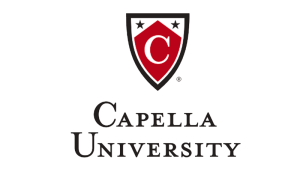
Our first school in Minnesota is actually an online university by the name of Capella University.
As one of the oldest online institutions, Capella University is taken very seriously when it comes to employers.
With over 37,000 students enrolled each year, there is something for everyone to get into through the various programs available to undergraduate and graduate students.
Those who have an interest in healthcare have several options, and a lover of their community can find the Public Health Bachelors degree available right on the internet.
Even your books are virtual so you don’t even need to go to a book store in order to learn at Capella University.
Each class is taken one at a time, so you can get the most out of each subject.
You’ll take courses that are of general knowledge like English and math but also more specialized courses that are steeped in biology and sociology like:
- Public Health and Policy Management
- Biostatistics
- Theories of Social and Behavioral Change
- Environmental Health
This small school is great for those who already have an established career or a family that they need to take care of while going to school.
You’ll be able to earn your degree right from home, saving money on tuition, gas, and meals out.
There are many benefits to an online degree, and one of the biggest is that you will still be able to gain employment in any of the Public Health careers that you want once you graduate.
After four years at Capella University, you will find many new doors open for you in roles such as:
- Education Program Manager
- Health Coach
- Wellness Coordinator
- School Health Educator
Enrollment
In order to be considered for admission at Capella University, prospective students will need to meet the following standards:
- Have a high school diploma or GED
- Are 23 years of age or older
- Submit official high school transcript
- SAT or ACT scores
The online application process is easy and should take anywhere between twenty and thirty minutes.
There is a $50 application fee for this school.
It may take a week or two to hear back from an academic advisor about the status of your application, but once you have been accepted you can look into which courses best suit you.
Fees
Tuition at Capella university is $2,500 for full-time students per semester.
Each year, students will pay $5,000 for their education here.
Since it takes four years to complete a degree at Capella University, the average graduate will end up paying $20,000 for their online degree.
Additional fees may apply such as:
- Application fee – $25
- Resource kit – $75
- Credit per earning – $75
Contact Information
- Address: 225 South 6th St. 9th floor Minneapolis, MN 55402
- Phone: 866-796-6651
- Website: www.capella.edu
2Concordia University-St. Paul
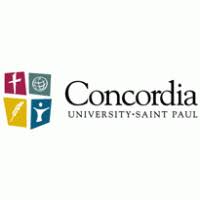
In St. Paul, Minnesota you’ll be excited to know that there is a great private school called Concordia University.
Minnesota residents can take part in online education or head to campus to enroll in in-person courses at this school.
This school has been a top Minnesota university for the past 100 years, which is a great testament to the incredible faculty and staff on campus.
You’ll be able to enroll in one of the over 100 degree options available at Concordia University.
If you have an interest in science, helping the public, or learning about the healthcare system of the United States and the world, you may want to consider what you can do with a Public Health Bachelors degree.
As a four year program, not only do students spend time in a classroom, but they also get the opportunity to work in a lab to see the biology and chemistry behind healthcare.
Several of the courses that you will take within this 120 credit hour program include:
- Drug Education
- Applied Nutrition
- Healthcare Economics
- Health Advocacy and Leadership
This program helps students learn how to keep the public safe in disease outbreaks as well as create and implement programs for every day use.
Once you complete all the required courses at Concordia University, you’ll be on your way to an exciting lifelong career in Public Health like:
- Environmental Health Educator
- Biometric Health Screener
- Cancer Information Specialist
- Medical Resource Manager
Enrollment
Concordia University has an easy online application that anyone can fill out in about a half an hour.
When you head to the website, you will see that there are both traditional and online applications to choose from.
You can also decide whether you are enrolling as a first year freshman, transfer student, international, or veteran.
Just keep in mind that in order to be accepted into Concordia University you will need to have a working computer.
Along with your application it is important to provide the following information:
- Transcripts from high school or previous university
- Admissions essay
- SAT or ACT scores
International students will also need to provide an English proficiency exam score.
Fees
Currently, it costs $25,000 per year to attend Concordia University.
It takes about four years to graduate with a Bachelors degree, so the average graduate pays $100,000.
Room and board is an additional $10,800 per year at this school.
While studying here, you may find that some other fees apply, including:
- Class audit – $175
- Summer school – $420
- International student fee – $2,400
Financial aid and scholarships are available to all qualified students.
Contact Information
- Address: 1282 Concordia Ave. St. Paul, MN 55104
- Phone: 651-641-8230
- Website: www.csp.edu
3St. Thomas University
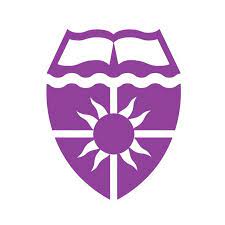
St. Thomas University is a private school that was founded in 1885, and has grown to become a campus of over 6,000 students per year.
This may be a small school but it packs a big punch when it comes to accreditation for each degree offered.
St. Thomas University has also been voted number one in best value for private schools by U.S. News and World Report.
There are so many great things to love about this tiny school, and one of those is the option to enroll in the Public Health Bachelors degree program.
Since this school is located in Minnesota, you won’t need to travel far to enjoy the enrichment offered here, because there are no online programs at this time.
If you are the type of person that wants a healthcare degree and loves helping others, you’ll enjoy the Public Health program.
Students learn a broad spectrum of biology, sociology, psychology and even some chemistry in small courses taught by industry professionals.
Take a look at a few of the classes that you will likely take in order to graduate from St. Thomas University:
- Statistics
- Epidemiology
- Global Health Issues
- Chemistry
Internship opportunities are a great way to gain hands-on experience in the real world, and St. Thomas University offers them on campus as well as in the surrounding community.
Your options will open up once you complete your four year degree at St. Thomas University, especially in Public Health careers like:
- Community Benefits Manager
- Nutrition Services Coordinator
- Violence Prevention Program Coordinator
- Public Health Inspector
Enrollment
In order to apply to St. Thomas University, you will need to head over to the website.
Once there, you will find the easy online application that only takes minutes to fill out.
Along with your application, it is required to submit some important information, such as:
- High school or previous education transcripts
- Essay question
- Letter of recommendation
Prospective students, however, won’t need to submit ACT or SAT scores in order to be considered for enrollment.
It is advised that all future students have at least a 3.3 GPA in order to be considered, but the school looks at a variety of factors submitted by individuals.
This university admits veterans, transfer students as well as international learners.
Fees
If you plan to attend St. Thomas University full time, you will spend $48,930 per year.
This means that after graduation you will pay $195,720 in tuition costs since a Bachelors degree requires a four year commitment.
For an additional $6,500 per semester students can live and eat on campus.
Other fees that may apply include:
- Lab fee – $205
- Technology fee – $120
- Activity fee – $118
- Health fee – $120
This school does have financial aid and scholarships available for all students.
Contact Information
- Address: 2115 Summit Ave. St. Paul, MN 55105
- Phone: 651-962-5000
- Website: www.stthomas.edu
4University of Minnesota-Duluth
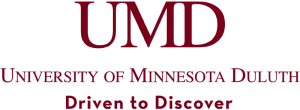
While the University of Minnesota in Duluth is considered a young university, opening its doors in 1947, this public school is well established in the state.
With over 240 acres to roam, the school boasts about 9,000 students on campus each year.
This beautiful landscape is right next to a gorgeous lake that students can utilize for extracurriculars or just leisurely, another selling point for the school.
You’ll definitely want to check out one of the 150 programs available for undergraduates to choose from here.
Options in accounting, English, math, and science are available to new and transfer students.
One of the best choices for students who want a role in helping their communities is the Public Health Bachelors degree.
Through the College of Education and Human Service Professions, students will take on a four year plan that allows for education in community support, hands-on learning experiences, and much more.
Once you complete all the required courses at the University of Minnesota in Duluth, you’ll be able to:
- Practice in various community settings
- Seek professional school training
- Earn certifications related to your profession
- Pursue graduate degrees
You will also learn skills that you can’t learn anywhere else such as:
- The responsibility of health education in active learning
- How to understand theories and research
- Determine needs for healthcare programs
- Developing health literacy skills
If this sounds like something that you would be interested in, take a look at a few of the courses that are required in order to graduate from this school:
- Statistical Methods
- Research and Evaluation in Health Science
- Professional Preparation in Public Health
- Women’s Health Issues
There are also various student clubs to take part in at the University of Minnesota in Duluth through the Public Health program, like:
- Public Health Student Group
- Drug and Alcohol Peer Educators
- UMD Sexual Health Educators
These groups, as well as internships and lab work will help you maintain knowledge in Public Health areas which can facilitate a successful career upon graduation.
Once you complete all the required courses, you will be on your way to serving your community in roles that include:
- Public Health Education Specialist
- State Public Health Worker
- Maternal/Child Health
- Workplace Wellness Coordinator
Enrollment
There are some incredible types of students at the University of Minnesota in Duluth, from first year to returning, you will fit in no matter what.
In order to become part of the education program here, you will need to apply.
It is easy to submit an application right on the website for the school.
All you will need to do is fill out your personal information, and everything can be done right from your computer in about twenty minutes.
Along with your application, it is important to submit the following documents:
- Transcripts from high school or previous education
- Senior year (high school) course schedule
- ACT or SAT scores
It will take until the fall for the school to let you know whether you have been admitted or not.
If you want to, you could always schedule a campus tour to see what the school has to offer while you wait.
Once you have been admitted, you can schedule orientation and start enrolling in classes that you will need to fulfill your major.
Fees
Residents of Minnesota will have a lower tuition rate than out of state learners, at $12,638 per year.
It will take about four years to complete a Bachelors degree here, so residents will pay $50,552 upon graduation.
Now, if you are from another state and want to attend this school, you will pay $18,028 per year to attend.
After four years, the tuition total is $72,112 for students from out of state.
Room and board prices are not available on the website, so speak to an academic advisor about this information.
Financial aid and scholarships are available for all students, and about 90% of students receive some sort of help to pay for tuition.
Contact Information
- Address: 1049 University Dr. Duluth, MN 55812
- Phone: 218-726-8178
- Website: www.d.umn.edu
5University of Wisconsin-Eau Claire
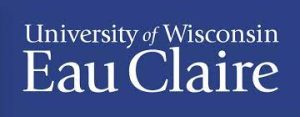
Our first out of state school is right in Wisconsin in the city of Eau Claire.
The University of Wisconsin in Eau Claire is considered one of the best colleges in the Midwest by U.S. News and World Report as well as one of the most innovative by the same report.
This school is also a ranked military institution, so to say that this school has a lot going on would be an understatement.
Minnesota students can take part in the wonderful education happening at this school, but they will need to pack their bags and move there in order to have access to classes.
There are hundreds of innovative and comprehensive programs to choose from at the University of Wisconsin in Eau Claire, but those who love the hands-on learning experience will get a kick out of the Public Health Bachelors degree.
This four year program is based in experiential learning and covers a multitude of topics from science to sociology.
While studying at the University of Wisconsin in Eau Claire, students in the Public Health program will take part in classroom and lab time in courses such as:
- Alcohol and Other Drug Abuse
- Human Communication
- Principles of Demography
- Health Economics
Organizations that you can join to make your Public Health degree more sufficient on campus will include:
- Student National Environmental Health Organization
- The Conservationists
- Women and Gender Minorities in STEM
Pulling from all directions in research and hands-on experience, you will have access to many great careers once you graduate from this school.
Expect the world of Public Health to open up for you with roles in lifelong careers such as:
- Healthcare Social Worker
- Community Health Worker
- Prevention Specialist
- Maternal and Child Care Provider
Enrollment
If you are looking for an easy application process, you will find just that with the online application for the University of Wisconsin in Eau Claire.
Whether you are a first year student, transfer, returning, or international, you have a place among the thousands of scholars here.
Along with your simple application, prospective students will need to provide information like:
- Transcripts from high school or previous universities
- ACT or SAT scores
After submitting the information, make sure to contact an academic advisor to set up a time to visit the campus.
This way, you’ll get a feel for the atmosphere to ensure that the school is right for you.
It should take about two weeks to hear back from staff about your enrollment status.
If you are accepted, you can then enroll in classes and begin orientation.
Fees
Wisconsin residents will pay $9,276 per year to attend the University of Wisconsin in Eau Claire.
This comes out to $37,104 after four years of education.
However, if you plan to utilize room and board throughout your education, the average yearly tuition cost is $18,071 and $72,284 upon graduation.
For those who are from out of state, the yearly tuition cost with room and board is $27,311 and $109,244 after four years.
If you are a resident of Minnesota, you will receive a discounted tuition of $19,113 per year which includes room and board.
This adds up to $76,452 after earning a degree from the University of Wisconsin in Eau Claire.
Contact Information
- Address: 105 Garfield Ave. Eau Claire, WI 54702
- Phone: 715-836-4636
- Website: www.uwec.edu
6University of Iowa
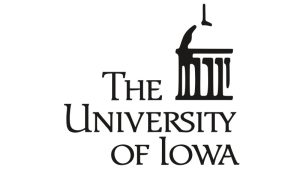
Head south to find the great University of Iowa located in beautiful Iowa City.
Minnesota residents will need to pack and move to Iowa in order to take part in the education here, but you’ll love the gorgeous change of pace.
This is a large school with over 30,000 students roaming the halls any given year, and thousands of opportunities to learn more about yourself and your interests with programs, extracurriculars, and clubs to get into.
Those who love healthcare related fields and want to enroll in something that is bigger than themselves can take a look at what the Public Health Bachelors degree has to offer.
The University of Iowa is ranked in the top 20 for Public Health degrees, so you know that you are getting an accredited and up to date learning experience here.
Along with general education courses, it is likely you will take on more complicated and interesting courses pertaining to healthcare like:
- Fundamentals of Public Health
- Health, Work, and the Environment
- Global Public Health
- The U.S. Health System in a Global Context
You’ll also get the opportunity to take part in experiential learning and research that is student-led.
The University of Iowa also provides study abroad capabilities for students with good grades, so you’ll be able to learn and grow in another country entirely.
That sounds like a blast, and with all the real-world experience gained through the University of Iowa, once you graduate you will be on your way to a top career in Public Health.
After four years, a degree in Public Health from the University of Iowa will grant you opportunities in roles including:
- Community Health Educator
- Clinical Research Specialist
- Cultural Competency Trainer
- Health Promotion Programmer
Enrollment
Current high school, transfer students, international students and even military students will find it easy to apply to the University of Iowa.
All you will need to do is go to the website and fill out the appropriate application.
The university of Iowa requires prospective students to create a username and password before beginning your application.
Once you do that you’ll be able to come back and finish your application if you need to leave at any time.
Along with your application, it is important to provide the following information:
- Transcripts from high school or previous education
- Proof of at least a 3.33 GPA
- SAT or ACT scores
That’s all you will need to do to apply to the University of Iowa.
Once your application is completed and submitted, it will take about two weeks to hear back from an academic advisor.
At which time, you’ll be able to choose classes and get started with the orientation process.
Fees
Iowa residents who decide they want to live and eat on campus will pay $21,829 per year to attend this school.
If you are an Iowa resident but want to live at home, your tuition will be $10,353 per year.
In state residents will pay between $41,412 and $87,316 to get an education at the University of Iowa.
If you are from out of state, your tuition will be a bit higher at $32,316 or $43,792 if you plan to utilize room and board.
After four years of school, expect to pay between $129,264 and $175,168 to earn a Bachelors degree.
Some other fees that may apply at the University of Iowa include:
- Books and supplies – $916
- Personal expenses – $3,098
- Transportation – $1,026
Financial aid is available for all students at the University of Iowa.
Contact Information
- Address: 2700 UCC Iowa City, IA 52242
- Phone: 319-335-3500
- Website: www.uiowa.edu
7University of North Dakota
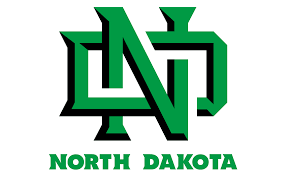
Just a state away you’ll find the lovely public school known as the University of North Dakota.
One of the many great aspects of this school is that students from across the country can choose to live on campus and learn or head online for their education.
Located in Grand Forks, this school has been around since 1883 and has become a bustling 500 acre campus over the years.
There have been more than 130,000 alumni who have walked the halls of the University of North Dakota, so you could be one of the many greats who have graduated from this fine institution.
You’ll notice that there are over 100 different programs to choose from when considering this school.
Those who want a degree that can help others and lead toward healthier living will want to pursue the Public Health Bachelors degree.
A comprehensive and evidence-based curriculum will fill your four years at this school with courses that include:
- Biostatistics
- Social and Behavioral Sciences
- Health Policy and Management
- Epidemiology
The University of North Dakota allows Bachelors degree graduates to earn a Masters degree in one year after completing all 120 credit hours.
You don’t have to go this route, but there are great opportunities for those that do.
Choosing to stick with a Bachelors degree is a great option as well and will allow you to gain employment in Public Health occupations in North Dakota, Minnesota, and around the world like:
- Environmental Health Educator
- Prevention Specialist
- Infection Preventionist
- Medical Resource Manager
Enrollment
Both first time freshman and returning students are welcome to apply to the University of North Dakota.
Students are rewarded for good grades in high school and are eligible for scholarships based on their academic GPA.
In order to obtain your scholarship at the University of North Dakota, your GPA must be:
- 3.9 – $14,000
- 3.7-3.89 – $11,000
- 3.5-2.69 – $1,500
National Merit Scholarships are also available upon enrollment as well.
In order to begin applying to this school, head over to the website to fill out the simple application.
It should only take about twenty to thirty minutes to apply if you have all of the necessary paperwork ready to go, including:
- Transcripts from high school or previous education
- SAT or ACT scores
There is a $35 non-refundable application fee for all applications submitted on the site.
It may take about two to three weeks to hear back from an academic advisor with the next steps in the process.
Fees
If you are a resident of North Dakota, you will pay $11,989 per year to attend.
Bachelors degrees require about four years to complete, so after graduation the total cost of attendance is $95,912.
If you decide to go to the University of North Dakota and you are not a resident of the state, you will pay $17,127 per year.
Non-residents will end up paying $68,508 upon graduation.
Housing and meal plans will add about $14,190 per year to that price for both non-residents and residents.
Contact Information
- Address: 3501 University Ave. Grand Forks, ND 58202
- Phone: 701-777-3000
- Website: www.und.edu
8University of South Dakota

Just below the last school on our list in South Dakota you’ll see the University of South Dakota.
As one of the largest schools in the state, you’d think that would mean a lot of students, but actually the school hosts about 6,800 students per year.
This intimate campus has been voted number one for best public schools in 2022, and with its small size that is saying a lot.
Minnesota residents love the University of South Dakota for the option to learn online or in-person.
That’s great for people who want to stay in Minnesota to learn or travel to a new state.
As of now, the Public Health Bachelors degree is online and in-person, so you have the choice of education modules.
With small class sizes and knowledgeable professors, you know you are getting top-notch education no matter where you choose to learn.
Both options will provide an interesting and all encompassing curriculum that will showcase courses such as:
- Social and Environmental Determinants of Health
- Ethics of Public Health and Policy
- Global Health
- Health Care Delivery
The great thing about the University of South Dakota is that there are hands-on opportunities to learn about Public Health all over the place.
Check out the Public Health Collaborative Project when you enroll to see how the students at the University of South Dakota are bettering their communities.
Public Health students will have the chance to work with local and government agencies to help teach health programs to people who may not otherwise receive them.
If that sounds like something that you’d be interested in, check out a few of the great careers that you can maintain once you graduate with a degree in Public Health from the University of South Dakota:
- Youth Outreach Coordinator
- Employee Wellness Coordinator
- Department Planner
- Health Officer
Enrollment
For those interested in attending the University of South Dakota, academic advisors suggest taking a campus tour before enrolling so that you can make sure the school is right for you.
If you are ready to apply, head over to the website to fill out the easy online application.
Once there, you will find all the information you need to submit your application.
Don’t forget to include these important pieces of paperwork before clicking submit:
- Transcripts from high school or previous education
- ACT or SAT scores
- Housing information
- Financial aid information
An admissions advisor will contact you within two weeks to talk about move-in dates and orientations that are required before your first day at the University of South Dakota.
Fees
Residents of South Dakota will pay $18,856 annually which includes room and board.
After four years of education at the University of South Dakota, residents will end up paying $75,424 in total.
Without a meal plan or housing, the cost is $7,773 per year, which is about $31,902 upon graduation.
If you are a resident of Minnesota, you will pay$19,801 including room and board per year.
That total comes out to $79,204 once you have graduated from the school.
For those who come to the University of South Dakota from out of state, the annual tuition is $22,366 including room and board.
A four year degree at the University of South Dakota for out of state students is equal to $89,304.
Contact Information
- Address: 414 East Clark St. Vermillion, SD 57069
- Phone: 877-269-6837
- Website: www.usd.edu
9University of Missouri-Kansas City
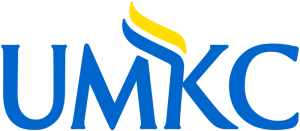
The University of Missouri in Kansas City is another perfect option for Minnesota residents.
Not only do you get the option to study online, meaning you won’t need to leave Minnesota to earn a degree, but you’ll also be in the company of some incredible alumni.
From Guggenheim Fellows to Pulitzer Prize winners and even a U.S. president, there is some fascinating history at the University of Missouri in Kansas City.
Hundreds of degree options are available both online and in person, so if you live in Minnesota you can still reap the rewards from this public school.
Are you the type of person that love biology, sociology, and psychology?
If so, then you may be just the right candidate to take on the Public Health Bachelors degree.
This four year program is a testament to helping others with healthcare issues, disease control, and community outreach.
You’ll take 120 credit hours of courses that are evidence-based and up to date like:
- Medical Terminology
- Diversity in Health
- Epidemiology
- Biology
The University of Missouri in Kansas City also offers internship opportunities for both online and in-person learners.
This means you’ll get hands-on experience before you even step foot into the career world of Public Health.
Your internship could even turn into a full-time career once you graduate.
The options are endless for a graduate of the University of Missouri in Kansas City, especially when you can choose from careers including:
- Wellness Coordinator
- Community Outreach Manager
- Health Policy Maker
- Emergency Management Director
Enrollment
The first thing you’ll want to do when considering enrollment at the University of Missouri in Kansas City is to head over to the website to find their application.
When you get there, you will notice that there are applications for incoming freshman, transfer students, international students, and even graduate students.
If you have never gone to college before, you’ll want to choose first year freshman, so that you can get all the benefits you need.
Transfer and international students will use their respective portals, to insure that all of their information is correct and accepted.
The application process for this school is fairly simple, you will just need to fill out your information and include some important paperwork like:
- ACT or SAT scores
- Transcripts from high school or previous education
At this time, there is no application fee to apply to this school, and it should only take about two weeks to hear back.
There are some deadlines you’ll want to consider, so take a look at the website as they are subject to change.
Fees
For students who are from Missouri, the average yearly tuition cost is $11,287.
This adds up to $45,148 after four years of education
If you are from out of state, you’ll pay about $27,760 per year to attend
As it takes four years to complete a Bachelors degree, the average out of state graduate pays $111,040 to attend this school.
This does not include room and board, which come out to about $16,484 per year.
If you choose to live on campus, you’ll pay $65,936 after four years of room and board.
Books typically cost about $814 per year.
There are scholarships and financial aid available to all students who attend the University of Missouri in Kansas City.
Contact Information
- Address: 1464 Charlotte St. Kansas City, MO 64108
- Phone: 816-235-1000
- Website: www.umkc.edu
10Brigham Young University
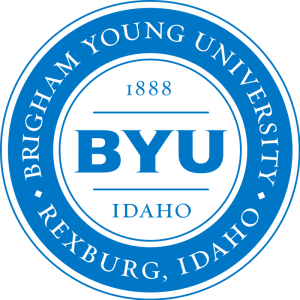
Minnesota residents can find their home for four years at Brigham Young University right in Provo, Utah.
While this school does have a strong basis in the Church of Latter-day Saints, you do not need to be a part of that community in order to reap the benefits of this school.
In fact, they offer inclusive and diverse campuses that build on students as a holistic being and not just one facet.
This established private school has over 300 undergraduate degree options and one of them is the Public Health Bachelors degree.
If you have an interest in disease control, healthy communities, and teaching individuals how to maintain good health, you’ll want to check out all that this program has to offer.
There are a multitude of classes that you will need to take in order to fill the 120 credit hour requirement to graduate from Brigham Young University.
A few of the courses that are required will include:
- Health Systems and Policy
- Occupational Health and Safety
- Environmental Health
- Chemistry
You won’t just be sitting in a class for four years, in fact, you’ll have the opportunity to work in labs as well as internships to get a feel for the Public Health side of life before you even graduate.
Completing all the degree requirements will lead to graduate and a successful lifelong career in one of many Public Health roles like:
- Research Assistant
- Technical Medical Writer
- Health Educator
- Outreach Specialist
Enrollment
Applying for enrollment at Brigham Young University is quite easy and shouldn’t take up much of your time.
The first thing that you will need to do is create a username and password which will get you into the application.
There are deadlines throughout the year so keep an eye out so you don’t miss your chance at enrollment.
Brigham Young University invites first year freshman and transfer students to enroll in their education system, but will need to see proof of high school or previous education transcripts.
Prospective students younger than seventeen are not allowed to apply to this school.
International students are also welcome to apply and will need to take an English Proficiency exam in order to be considered.
After turning in your application, it will take a couple of weeks to hear back about the status of your enrollment, but you can check on the website periodically to see if there are any updates.
Fees
Students who are members of the church of Latter-day Saints will pay $6,496 per year to attend Brigham Young University.
It takes about four years to complete a degree here, so the average Bachelors degree for this type of student costs $25,984.
For people who are not a part of the church, the price of tuition is $12,992 per year.
Adding that up for a four year total brings the tuition price to $51,968.
These prices reflect full time students, for those who enroll part time the cost is $342 per credit hour and $684 per credit hour respectively.
Contact Information
- Address: Provo, UT 84602
- Phone: 801-422-4636
- Website: www.byu.edu
Final Thoughts
Now that you have seen what Minnesota and the surrounding states have to offer for Public Health degrees, we hope that you can narrow down your options for great schools.
It is rewarding to begin a Public Health career, so we know that it is not an easy choice to decide where to earn your degree.
However, all of these schools are accredited and ready to accept you as their new student.









